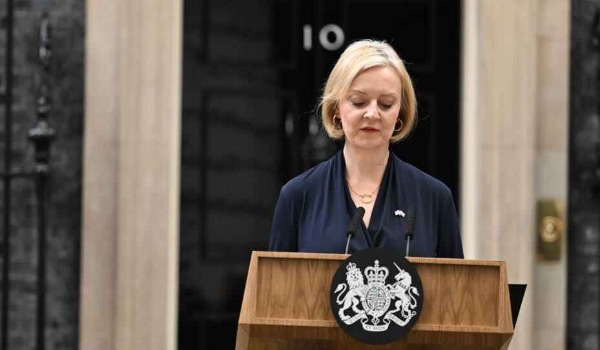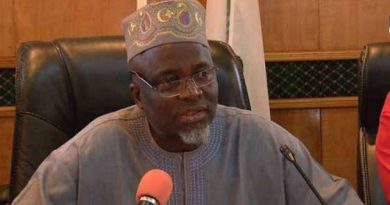Breaking: Liz Truss quits as British Prime Minister after 6 weeks over failed budget and market turmoil
British Prime Minister Liz Truss announced her resignation just a month and a half after taking office.
Truss resigned Thursday just a month and a half after taking office following a failed tax-cutting budget that rocked financial markets and which led to a revolt within her own Conservative Party.
The development came on Thursday after her new Chancellor of the Exchequer, Jeremy Hunt, had rolled back virtually all of her economic agenda.
Truss said in a statement outside Downing Street: “We set out a vision for a low-tax, high-growth economy that would take advantage of Brexit.”
“I recognize though, given the situation, I cannot deliver the mandate on which I was elected by the Conservative Party. I have therefore spoken to His Majesty the King to announce that I am resigning as leader of the Conservative Party.”
Her resignation follows a meeting with Graham Brady, the Conservative politician that is in charge of leadership votes and reshuffles. Brady chairs the 1922 Committee — the group of Conservative MPs without ministerial positions who can submit letters of no confidence in the prime minister.
Just before the meeting, a Downing Street spokesperson told reporters Truss wanted to stay in office.
During the hour the meeting lasted, the number of MPs publicly calling for Truss to step down reached 17. The number who have written letters to Brady expressing no confidence in the prime minister was reported to be over 100 by Thursday.
Truss said outside Downing Street that she and Brady had agreed the party would hold a leadership election within the next week.
Truss was appointed prime minister on Sept. 6, just two days before Queen Elizabeth II passed away after 70 years on the throne.
On Sept. 23, Truss’ finance minister, Kwasi Kwarteng, announced an unpopular “mini-budget” which began a turbulent period for U.K. bond markets which balked at the debt-funded tax cuts he put forward. Most of the policies were reversed three weeks later by the second finance minister, Jeremy Hunt.
Recall that Truss beat Rishi Sunak to become the leader of the Conservative Party following the resignation of Boris Johnson on July 7. Sunak is now one of the favorites to replace Truss, along with Hunt, another leadership contender Penny Mordaunt, Defense Minister Ben Wallace, and former Prime Minister Boris Johnson.
She was hanging on to power by a thread on Thursday after a senior minister quit her government with a barrage of criticism and a vote in the House of Commons descended into chaos and acrimony.
Hunt’s move was supposed to be an impetus for growth, but it became Truss’s declaration of political bankruptcy.
At the beginning of this month, at the Conservative Party Conference in Birmingham, Truss had still attempted to rally the party around her controversial approach of boosting Britain’s economy.
“I have three priorities for the economy: growth, growth, growth,” she had said.
The 47-year-old, who entered parliament in 2010 and, by 2014, found herself in a first cabinet position, secretary of state for environment, food, and rural affairs under former Prime Minister David Cameron, has since served under Theresa May and Johnson in various positions.
In 2021, she was handed the top role of foreign secretary. After Johnson’s announcement to step down, she entered the leadership contest and won the race to succeed the latter with 57.4 percent of the members’ vote (against Rishi Sunak, who obtained 42.6 percent) over the summer by promising radical tax cuts, and high spending to curb energy prices, her very own version of supply-side economics.



